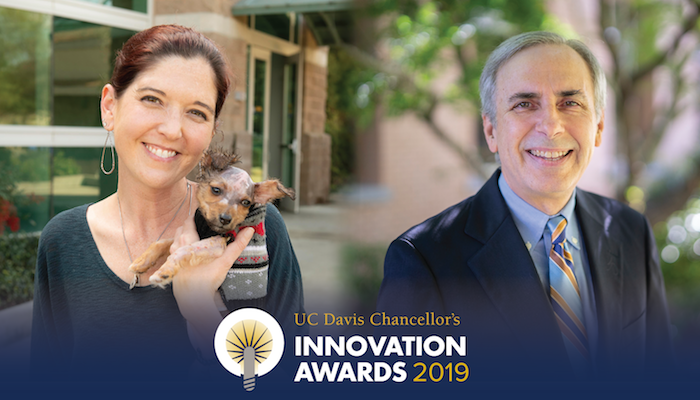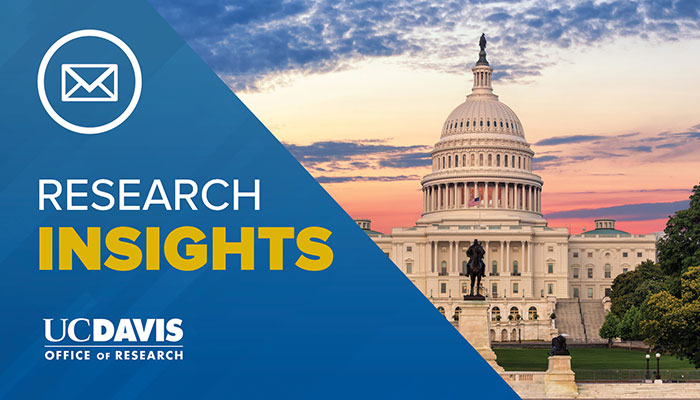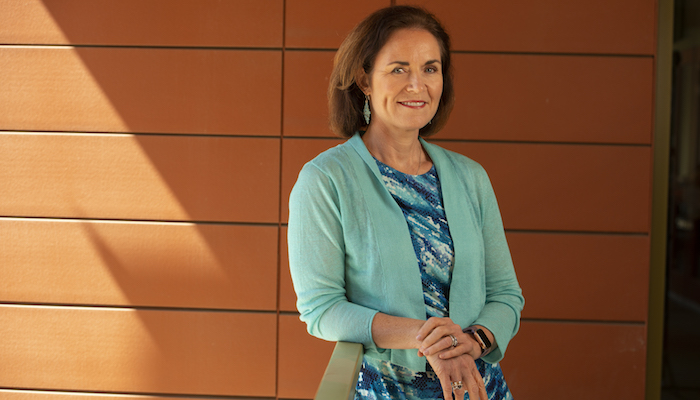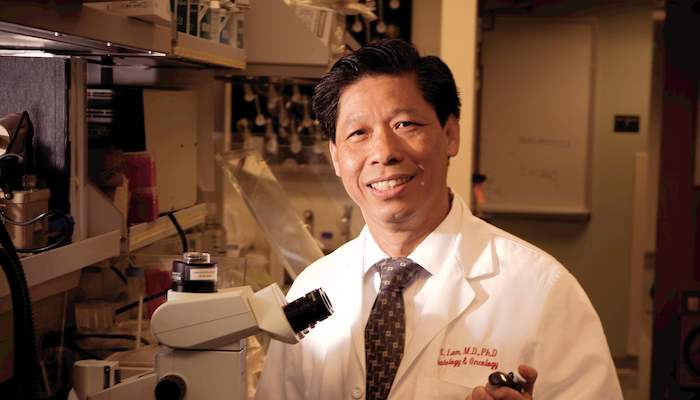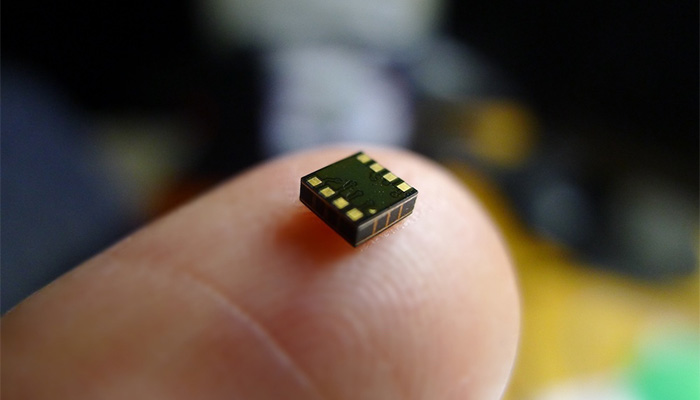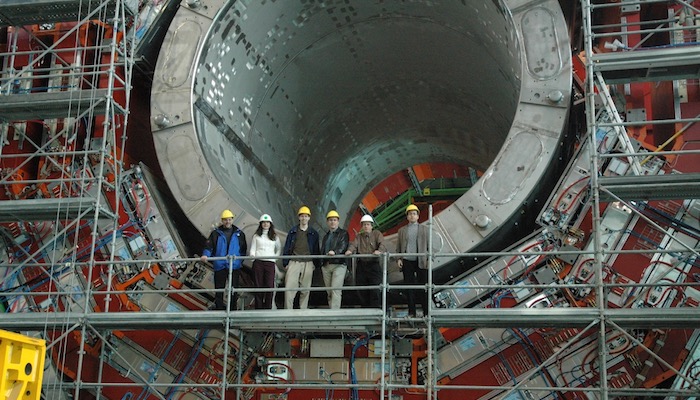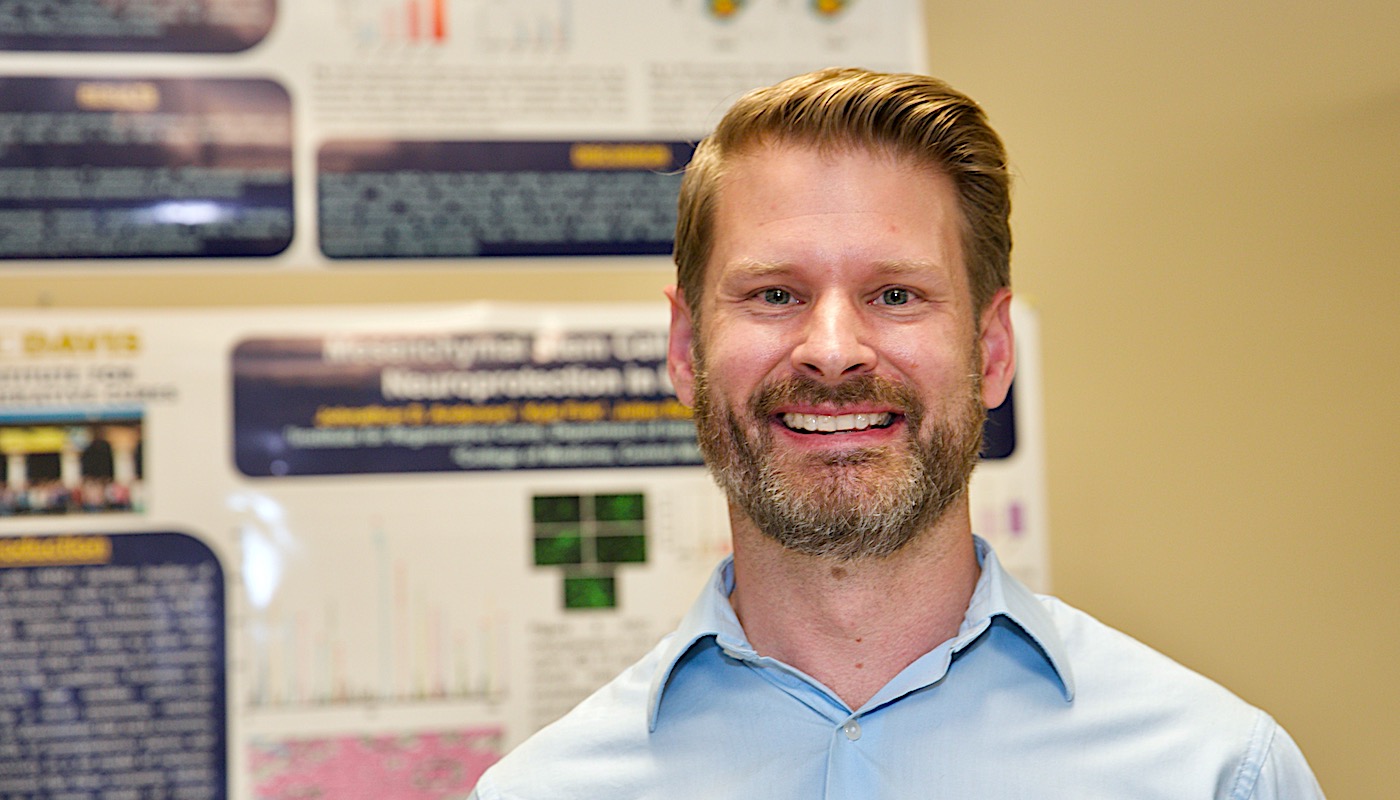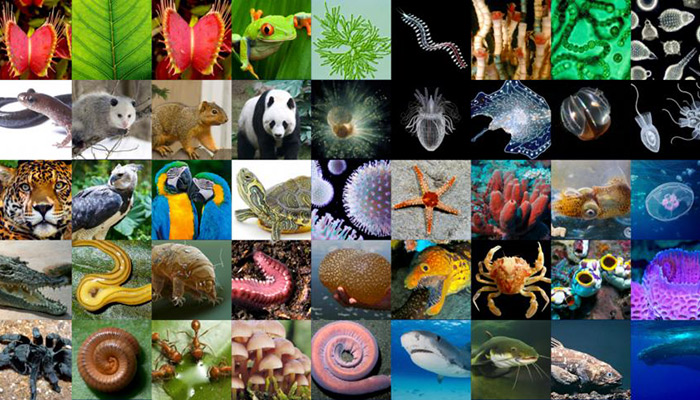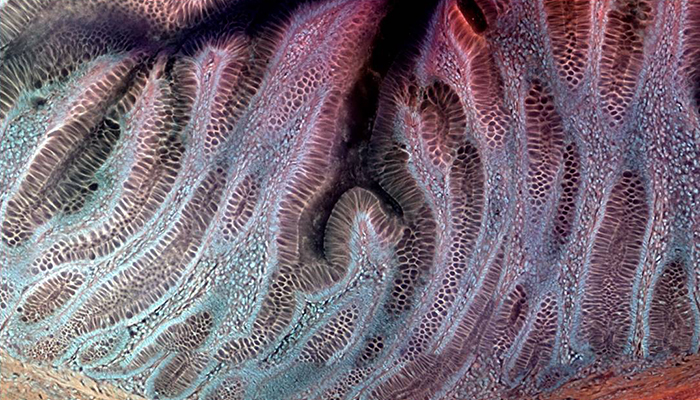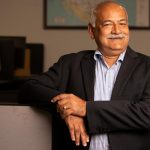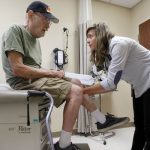UC Davis Honors Recipients of 2019 Chancellor’s Innovation Awards
By Lisa Howard
The University of California, Davis, announced the recipients of the 2019 Chancellor’s Innovation Awards at a ceremony at the UC Davis Mondavi Center for the Performing Arts tonight (May 30). It is the fourth year for the awards, which recognize the important contributions of faculty, community partners and industry leaders in helping to establish UC Davis as a global leader in innovation.
“These honorees represent the spirit of excellence and innovation that distinguishes UC Davis as one of the best public research universities in the nation,” said Chancellor Gary May. “They are the game-changers making a positive impact — not only in our region, but also around the world.”
“It is both a pleasure and a privilege to celebrate the campus innovators and community partners whose contributions have resulted in important societal and regional impact in the last year as well as through their lifetime of innovative achievement,” said Dushyant Pathak, associate vice chancellor of Innovation and Technology Commercialization, a division of the Office of Research, and the executive director of Venture Catalyst, a unit within this division. Venture Catalyst manages the award.
Innovator of the Year
This year’s recipients for Innovator of the Year are Jamie Peyton, chief of Integrative Medicine Service at the UC Davis School of Veterinary Medicine, and Michael Rogawski, professor in the UC Davis Departments of Neurology and Pharmacology and former chair of the Department of Neurology.
The Innovator of the Year award recognizes individual faculty, staff or teams whose innovative research or accomplishments have made a measurable societal impact in the preceding year, or whose university activities have achieved important milestones, and have had or present very strong potential for societal impact. Recipients receive $10,000 which can be applied to their research or to their university enabled societal engagement efforts.
Jamie Peyton
Veterinarian Jamie Peyton was selected Innovator of the Year for her successful and groundbreaking use of sterilized tilapia skin to treat animals with burns. Peyton developed the technique to prepare and store the tilapia skin bandages, which are high in a collagen matrix that promotes wound healing while covering delicate nerve endings for almost immediate pain relief. The treatment has the potential to dramatically change veterinary burn care.
Peyton’s work first gained attention with the successful use of tilapia skin to quickly heal the severely burned paws of two bears that survived the December 2017 Thomas Wildfire in Southern California. The success of the technique led to using tilapia-skin treatment on numerous companion animals and wildlife, including animals injured in the devastating 2018 Camp Fire and a horse in England burned in a chemical attack. The treatment has healed numerous animals that would have otherwise been euthanized. The idea, adapted from a Brazilian medical team using tilapia skin on human burn patients, has been used in 13 animal species to date, all with resounding success.
Michael Rogawski
Neurologist Michael Rogawski was selected Innovator of the Year for his groundbreaking research with allopregnanolone, also known as brexanolone. Earlier this year, brexanolone received Food and Drug Administration approval as the first and only specific drug treatment for women with postpartum depression. In the United States, roughly one in every nine women who give birth will experience postpartum depression, a major depressive disorder that can have devastating consequences for a woman and her family.
Rogawski became interested in developing a treatment for postpartum depression with allopregnanolone when his studies showed the naturally-occurring neurosteroid had antidepressant possibilities. During pregnancy, levels of the hormone progesterone rise dramatically but fall precipitously during the day or two after giving birth. Levels of allopregnanolone, which is derived from progesterone, also fall after childbirth. Rogawski reasoned that withdrawal of allopregnanolone might trigger depression in some susceptible women. With collaborators at UC Davis, he developed a formulation of allopregnanolone that restores the blood level of allopregnanolone to that in late-stage pregnancy. Sage Therapeutics licensed rights, including certain patent rights, from the University of California for commercial use of allogpregnanolone and plans to release Zulresso (brexanolone) in June 2019. Zulresso is expected to improve women’s health and to impact treatment protocols for postpartum depression locally, nationally and globally.
Lifetime Achievement Award for Innovation
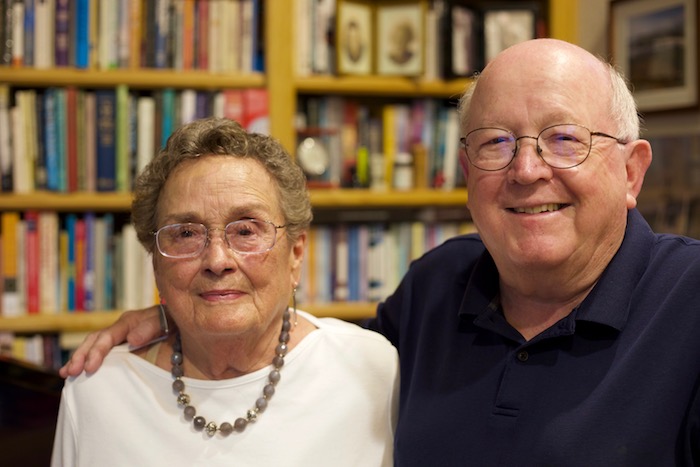
Lois and John Crowe are known for their pioneering work understanding how certain organisms are able to survive extreme dehydration using a simple sugar called trehalose. (Lisa Howard/UC Davis)
John and Lois Crowe received the Lifetime Achievement award, which recognizes researchers whose career accomplishments include innovations that have led to a long-term positive impact on the lives of others and who are an inspiring influence for other innovators. They are known for their pioneering work understanding how certain organisms are able to survive extreme dehydration using a simple sugar called trehalose. Those research findings have led to widespread innovations in pharmaceuticals, medicine and agriculture, and have been the basis for numerous products as well as companies geared towards saving and improving lives.
John is professor emeritus of molecular and cellular biology in the College of Biological Sciences. He was the director of the UC Davis Center for Biostabilization before retiring. His wife and research partner, Lois, was a biophysicist in the Departments of Zoology and Molecular and Cellular Biology before retiring. In 2018, they were recipients of the UC Davis Medal, the highest honor the university bestows on individuals
Innovative Community Partner Award
This year’s recipient of the UC Davis Chancellor’s Innovative Community Partner of the Year Award is the Sacramento Region Innovation Awards. This is a program that the law firm Stoel Rives has founded in three other regions in the country, and executed locally in partnership with the public accounting firm Moss Adams.
The awards program was selected for its role in showcasing and strengthening our region’s innovation community. The awards recognize regional innovation across eight categories, honoring the people and organizations that advance new products, services and processes in the Greater Sacramento Region. The award was accepted by Melissa Jones, partner at Stoel Rives, and John Whitfield, senior business development executive at Moss Adams.
Media contact(s)
- AJ Cheline, UC Davis Office of Research, 530-752-1101, [email protected]
Media Resources
- 2019 UC Davis Chancellor’s Innovation AwardsHealing Burned Animals with Fish Skin
- Neurologic disease research at UC Davis contributes to first treatment specifically approved for postpartum depression
- Michael Chapman, John and Lois Crowe, and Gurdev Khush to Be Honored With UC Davis Medal
- Sacramento Region Innovation Awards
2019 Chancellor’s Innovation Awards Nominees
Anne Britt, Professor, Plant Biology, College of Biological Sciences; Neelima Sinha, Professor, Plant Biology, College of Biological Sciences
Transformation protocol that will enable genome editing in plants not previously compatible with CRISPR and CRISPR-like technologies
Simon Cherry, Distinguished Professor, Biomedical Engineering, College of Engineering; Ramsey Badawi, Professor, Radiology, School of Medicine; Terry Jones, Visiting Professor, Radiology, School of Medicine; Xuezhu Zhang, PhD Candidate, Biomedical Engineering, College of Engineering; Aaron Selfridge, PhD Candidate, Biomedical Engineering, College of Engineering; Eric Berg, Postdoctoral Scholar, Biomedical Engineering, College of Engineering; Edwin Leung, PhD Candidate, Radiology, School of Medicine; Jinyi Qi, Professor, Biomedical Engineering, College of Engineering; Guobao Wang, Assistant Professor, Radiology, School of Medicine; Julien Bec, Biomedical Engineer, Biomedical Engineering, College of Engineering; Elizabeth Li, PhD Candidate, Biomedical Engineering, College of Engineering; Benjamin Spencer, Technical Project Manager, Radiology, School of Medicine
Total-body Positron Emission Tomography (PET) scanner allowing for improved image quality, reduced radiation dose, and faster scanning.
Ian Faloona, Associate Professor, Land, Air, and Water Resources, College of Agricultural and Environmental Sciences
Airborne technique to quantify methane and other pollutant emissions in the atmosphere and improve the accuracy of
emission inventories.
Allen Gao, Ralph de Vere White Professor and Director of Urologic Research, Urology, School of Medicine
Therapeutics that re-sensitize cancer cells to chemotherapeutic agents so patients can be more successfully treated.
Bruce Hammock, Distinguished Professor, Entomology and Nematology, College of Agricultural and Environmental Sciences
Developing a non-opioid treatment for pain and moving the oral medication to human Phase 1 clinical trials.
Peter Havel, Professor, Molecular Biosciences, School of Veterinary Medicine; Kimber Stanhope, Research Nutritionist, Molecular Biosciences, School of Veterinary Medicine; James Graham, Staff Research Associate, Nutrition, College of Agricultural and Environmental Sciences
Rodent model for investigating new therapies for the prevention and treatment of Type-2 Diabetes Mellitus.
David Horsley, Professor, Mechanical and Aerospace Engineering, College of Engineering
Micro-electromechanical systems for ultrasonic sensors that detect objects in three-dimensional space.
Charles Lee, Assistant Adjunct Professor, Cell Biology and Human Anatomy, School of Medicine
Hyper-crosslinked carbohydrate-based polymer for bone healing and regrowth.
Samuel Louie, Professor, Internal Medicine, School of Medicine
Interdisciplinary approach to patient safety and reduction of Chronic Obstructive Pulmonary Disease readmissions.
Denis Marcellin-Little, Professor, Surgical and Radiological Sciences, School of Veterinary Medicine
Three-dimensional printed bones and implants for use in planning surgical bone and joint procedures and supporting orthopedic resident surgical training and client education.
Laura Marcu, Professor, Biomedical Engineering, College of Engineering
Biophotonic techniques for label-free tissue characterization and clinical translation of fluorescence lifetime based instrumentation.
Kate Marusina, Director, Clinical and Translational Science Center, School of Medicine
Technology platform to enroll human and animal research participants in clinical studies.
Mark Mascal, Professor, Chemistry, College of Letters and Sciences
Processes that uses waste biomass to produce bio-based plastics, fuels and antioxidants.
Mark Modera, Director, Western Cooling Efficiency Center, Energy and Efficiency Institute, College of Agricultural and Environmental Sciences
Technology for sealing residential and commercial buildings, airplanes, and pipelines through an automated application of an
aerosolized sealant.
Jan Nolta, Professor, Cell Biology and Human Anatomy, School of Medicine
Methods for culturing mesenchymal stem cells and engineering lentivirus-based DNA vectors into stem cells for therapeutic use.
Jamie Peyton, Chief of Service, Integrative Medicine, UC Davis Veterinary Medical Teaching Hospital
Tilapia skin xenograft for use in burn patients to alleviate pain and encourage rapid healing.
Edward Pugh, Professor, Physiology and Membrane Biology, Cell Biology and Human Anatomy, School of Medicine
Interferometric technique employed in ophthalmic clinics and eye research to assess the 3D structure of the retina and its vasculature.
in vivo.
Hooman Rashidi, Professor, Pathology and Laboratory Medicine, School of Medicine
Self-assessment tool integrated into an app format for hematology education.
Michael A. Rogawski, Professor, Neurology, School of Medicine
Intravenous formulation of allopregnanolone for treatment of postpartum depression.
Daniel Sperling, Director, Institute of Transportation Studies, College of Agricultural and Environmental Sciences; Giovanni Circella, Research Director of 3 Revolutions Future Mobility Program, Institute of Transportation Studies, College of Agricultural and Environmental Sciences; Rosa Dominguez-Faus, Program Manager of 3 Revolutions Future Mobility Program, Institute of Transportation Studies, College of Agricultural and Environmental Sciences; Farzad Alemi, Postdoctoral Scholar, Institute of Transportation Studies, College of Agricultural and Environmental Sciences; Mollie D’Agostino, Policy Director of 3 Revolutions Future Mobility Program, Institute of Transportation Studies, College of Agricultural and Environmental Sciences
Initiative focused on research, innovation, and policy analysis around vehicle electrification, vehicle automation, and shared mobility.
Venkatesan Sundaresan, Distinguished Professor, Plant Biology, College of Biological Sciences
System for producing synthetic apomixis in rice and possibly other plant systems to enable deployment of high-yielding hybrid seeds.
Lin Tian, Associate Professor, Biochemistry and Molecular Medicine, School of Medicine
Platform for rigorous high-throughput cell-based screening and validation of G-protein-coupled receptors ligands.
Allen Van Deynze, Director of Research for the Seed Biotechnology Center and Associate Director of the Plant Breeding Center, Plant Sciences, College of Agricultural and Environmental Sciences; Theresa Hill, Senior Research Associate, Plant Sciences, College of Agricultural and Environmental Sciences
Trait for development of easy-decapping peppers that can be picked without the stem.
Allen Van Deynze, Director of Research for the Seed Biotechnology Center and Associate Director of the Plant Breeding Center, Plant Sciences, College of Agricultural and Environmental Sciences; Howard Shapiro, Senior Fellow, Plant Sciences, College of Agricultural and Environmental Sciences
Consortium focused on creating the tools and knowledge to improve the nutritional content and agronomic properties of traditional African food crops.
Keith David Watenpaugh, Professor, Human Rights Studies, College of Letters and Sciences
Digital tool for safe storage and sharing of critical educational documentation to empower refugee academic and employment mobility.
Michael Wilkes, Professor, Internal Medicine, School of Medicine
Mobile app that is scalable and adaptable for human, animal, plant, and environmental management and diagnostic needs in distant
rural communities.
Aiming Yu, Professor, Biochemistry and Molecular Medicine, School of Medicine
Bioengineering of biologic RNA molecules through a cost-effective, high-yield, and large-scale bacterial fermentation process.
Latest News & Events

